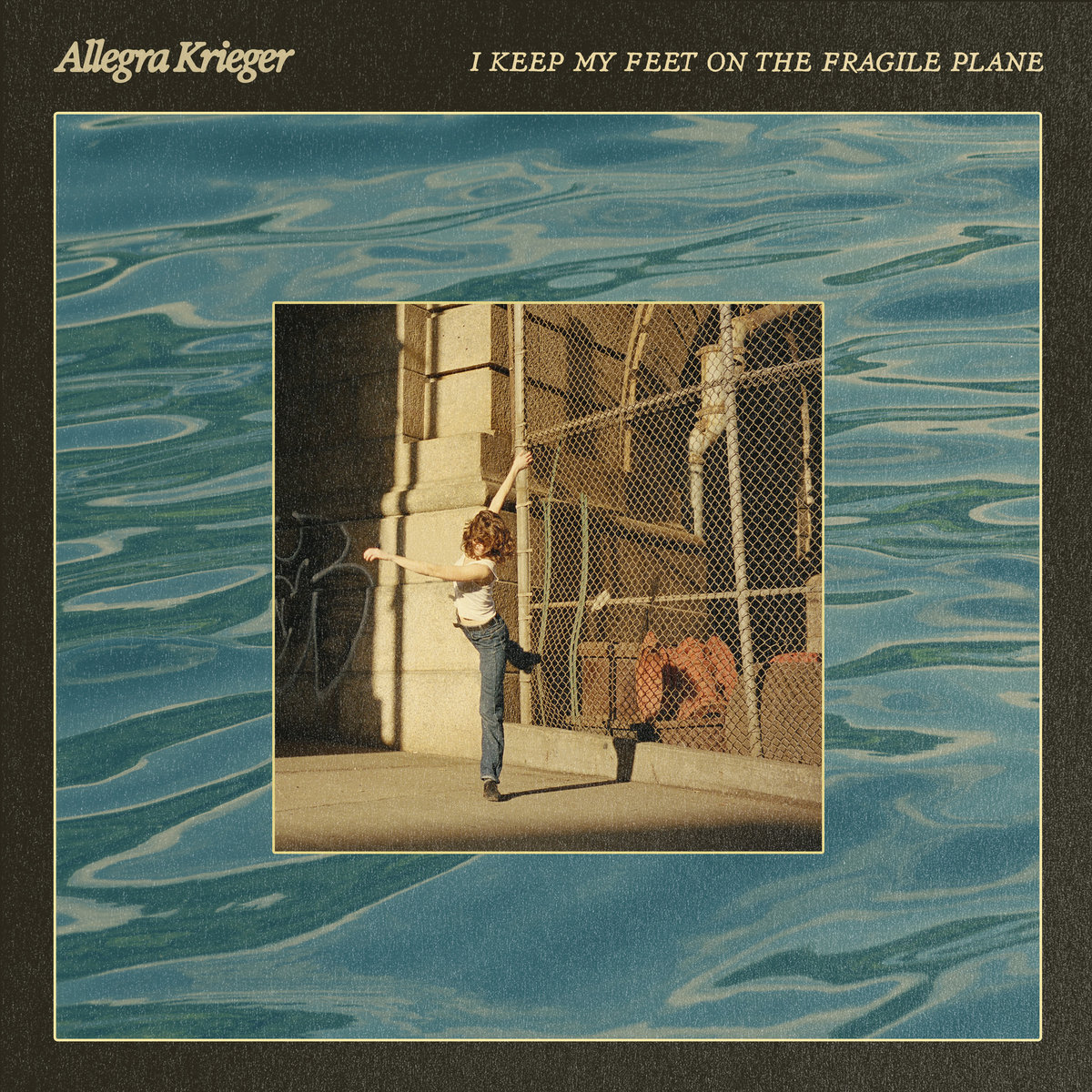Allegra Krieger
I Keep My Feet on the Fragile Plane
DOUBLE DOUBLE WHAMMY
There’s an enchanting detachment felt throughout Allegra Krieger’s fourth LP I Keep My Feet on the Fragile Plane. That title is both more and less metaphorical than the lyrics on the album, which veer from straightforward observations to poetically assembled turns of phrase that will stay with you long after the album ends. Krieger puts most of her weight on the words that make up Fragile Plane’s lyric sheet, because there isn’t much else to offer (the guitars are generally acoustic and sparse, and other instruments rarely make appearances).
There are elements of Grouper to this work, though Krieger puts herself at the forefront of these songs—Fragile Plane is her story and she tells it with a commanding language and intoxicating presence. People leave as quickly as they appear, but there’s not enough time for Krieger to linger on the past. This is an album that uses little moments of heartbreak for propulsion, with this momentum giving the album its sturdy bones.
Early into mid-album track “I Wanted to Be,” which features the loosely structured strumming of a Microphones B-side, Krieger offers a clarifying moment of vulnerability, admitting, “I don’t want to watch everything I love leave / Already forgot if you remember me or not.” The line, on its own, is a rather perfect moment on the album, both because of its honesty and the way she drops her voice to its lowest register as she says “love.” It’s a reminder that sometimes lyrics are only as good as the way they’re delivered, while later on in the song it offers another songwriting lesson: Context is as important—if not more so—than content. This phrase on its own is one of heartbreak and loneliness, of being scared by what the future holds. But by the end of the song, Krieger has come to terms with her isolation, singing, “And I never forgot that as something grows, something else must rot.” Where dispirited musings once laid, new opportunity has been planted.
Krieger saves the album’s strongest statement for last in the form of “Lingering,” which sees her going electric and introducing the sparsest of drum performances. It’s a song of missed moments, of journeys that don’t end but dissipate into the nothingness of our most ordinary days. She has a story to tell, but the piss and garbage on the streets makes her forget what she had to say. “Don’t want to get used to / How it feels to hold you,” she sings.
It’s during the song’s conclusion that Krieger introduces the album title, which she describes as “a middle ground in the universe.” It’s a place of blissful nothingness, and until that place can be reached, Krieger lives contently knowing that a patch of dirt will one day bloom something beautiful—and that strikingly bright flower will one day return to the ground from which it came.









